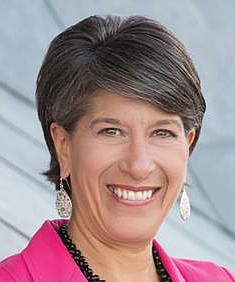In 30-plus years of working with couples and listening to why they have decided to divorce, the reasons include things you would expect to hear, such as infidelity, lack of commitment, financial issues, too much conflict, the stress of caring for children with special needs, the impact of the death of a child, substance abuse and physical abuse.
Reasons that might catch you off-guard are health issues. In some instances, the spouse is too overwhelmed by the health issues of their partner. In other situations, the couple is still very much in love, but the medical bills are draining their life savings. Divorcing makes it possible for them to manage the financial burden. In-laws without boundaries is another reason couples cite for making the decision to divorce.
Many couples say they really don't want to divorce, but they can't keep living like they have been living and they have done all they know to do. Statistics indicate that only 30% of divorces are due to affairs, addiction or abuse. In 70% of divorces, couples cite disconnectedness even though they love but are not "in love" with their spouse anymore.
If you find yourself considering divorce, there are some important things for you to think about. Even though you have tried everything you know and nothing has worked to change your relationship, that doesn't mean you have tried everything that is available to help you work through the issues at hand. Marriage intensives, one-day experiences specifically designed for couples experiencing distress, and phone coaching are all available and have excellent success rates.
Resources for abused spouses
* If abuse is an issue in your marriage:* Chattanooga’s Domestic Violence and Sexual Assault Crisis Hotline is 423-755-2700.* The National Domestic Violence Hotline is 800-799-7233, or go to thehotline.org.
After trying everything they knew to try and change their relationship, one couple decided to file for divorce. Out of respect for their pastor, they went to tell him they were calling it quits. He asked them if they would be willing to try just one more thing. He asked them to attend a one-day class specifically for couples in distress. They were not excited about it nor were they hopeful the day could make any difference in their relationship, but they agreed to do it. At the end of the day, they tore up their divorce papers and haven't looked back. That was almost 10 years ago. They are now empty-nesters and their marriage is thriving. What they know now is they needed information, tools and a different perspective on how to get out of the ditch they were in. They have no regrets.
PREP WORK
Keep in mind that just because someone has "marriage and family therapist" or "counselor" behind their name does not mean they are for your marriage. Most marital therapists are specifically trained to be nondirective or neutral. The following suggestions can help you choose a counselor whose goal is to keep your marriage intact, if possible:
' Before setting up the first appointment, ask certain questions to make sure the counselor will help you accomplish your goals of making the marriage mutually fulfilling.
' Ask to schedule a 10- to 15-minute phone interview. If the counselor is unwilling to have an initial phone conversation, eliminate that counselor from consideration.
QUESTIONS TO ASK
During the interview, ask:
* What is your goal for our marriage? (Answer: To help you both achieve marital fulfillment and to save your marriage.)
* What are your credentials and years of experience in marriage counseling? (Answer: a graduate degree in mental health, such as a master's or doctorate in psychology or social work, with clinical supervision in marriage counseling.)
* Briefly explain your problem, then ask if they have experience helping couples overcome that problem, and ask for their success rate in dealing with your particular issue. (Answer: Experience helping couples overcome that particular problem with more than 75% success).
FOLLOW-UP
After both spouses have a chance to speak to a few potential counselors, choose the one you both feel most comfortable with and set up your first appointment.
Every marriage goes through challenging seasons. If you are unhappy in your marriage, you might want to pay attention to who you are spending time around and exercise caution in who you allow to speak into your marriage. People can be sincere in what they say, but sincerely wrong in the advice they give. Hanging out with people who are recently divorced, dissatisfied in their marriage or unhappy with life in general can place you at higher risk for becoming more dissatisfied and ultimately lead you to believe divorce is your only/best option when it really isn't.
Julie Baumgardner is president and CEO of family advocacy nonprofit First Things First. Email her at julieb@firstthings.org.
